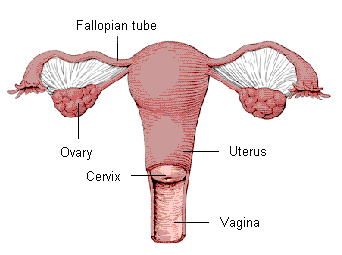As the name implies PCOS does involve the ovaries a source of excess androgens and the frustrating and unwanted symptoms that go with it. Occasionally people whose ovaries were not removed during a hysterectomy experience hot flashes and other menopausal symptoms.
 Hysterectomy Southern Cross Nz
Hysterectomy Southern Cross Nz
Tried removing ovary but its attached to my bow.

Hysterectomy without removing ovaries. As you can see in this blogs photo the major connecting piece is missing. Therefore often after hysterectomy treatment with hormones is recommended in order to compensate for their deficiency and reduce discomfort. A study of females who underwent hysterectomies without ovary removal from 19802002 found that they had a 66 higher risk for new depression diagnoses and a 47 higher risk for anxiety.
About Press Copyright Contact us Creators Advertise Developers Terms Privacy Policy Safety How YouTube works Test new features Press Copyright Contact us Creators. If you arent at high risk for cancer having your ovaries removed isnt recommended. Specifically their risk was 46-fold for congestive heart failure and 25-fold.
But since every woman is different there is no saying for sure what will happen and in what amount of. This is mostly due to the disturbance of the blood supply to. The fallopian tubes and the ovaries may or may not be removed.
If you have already gone through the menopause or youre close to it removing your ovaries may be recommended regardless of the reason for having a hysterectomy. Removal of the ovaries is not an automatic part of a hysterectomy and may have serious implications for future health The hormone oestrogen produced by the ovaries has an important function in preserving the health of the bones and vagina Recent research has shown that if ovaries are left behind they do not fail any sooner after a hysterectomy. Had a hysterectomy two years ago and they left one ovary which seems to keep developing painful cysts.
Some surgeons feel its best to leave healthy ovaries in place if the risk of ovarian cancer is small for example if theres no family history of the. Women who had one or no ovaries removed were less likely to develop ischemic heart disease coronary artery disease or cancer after hysterectomy. Studies show that if you are at high risk surgery greatly lowers your risk.
Tens of thousands of women each year have their ovaries taken out during a hysterectomy the surgical removal of the uterus. Key points to remember The main reason doctors recommend removing the ovaries during hysterectomy is to lower the risk of ovarian cancer. The consequence of the total removal of the uterus and ovaries is the complete cessation of the production of sex hormones which is accompanied by the typical symptoms of menopause.
The idea is to prevent ovarian cancer and the. Current recommendations from the American College of Obstetrics Gynecology are to remove fallopian tubes during Hysterectomy even if ovaries are preserved since they provide no function other than to transport eggs can be a source of cancer and do not produce any hormones. A Mayo Clinic study has shown that hysterectomy without removal of ovaries increases risk of heart disease.
Hysterectomy without removing ovaries A 39-year-old member asked. A total hysterectomy removes the cervix as well as the uterus. As a result the ovaries are more likely to malfunction or shut down all together.
Removes all of the uterus cervix the tissue on both sides of the cervix and the upper part of the vagina. When you remove the uterus and leave the ovaries in place during a partial hysterectomy you are severing their major source of blood. 3 UPI --Women who have hysterectomies without removal of ovaries face increased risk for cardiovascular diseases and metabolic issues a new study suggests.
In certain cancer cases. Women who had a hysterectomy before age 35 are at a particularly high risk. A partial hysterectomy is surgical removal of the uterus alone and a myomectomy is removal of only fibroids.
This is to protect against the possibility of ovarian cancer developing. That is menopause comes prematurely. Leaving ovaries intact during hysterectomies for non-cancerous conditions may boost long-term survival rates for women under age 65 according to the results of a new study published in the August issue of Obstetrics and Gynecology.
A radical hysterectomy is most often used to treat certain types of cancer such as cervical cancer. It would then seem likely that removal of the ovaries would cure PCOS. It is a large myth that a hysterectomy is a cure for the millions of women suffering from polycystic ovary syndrome PCOS.
